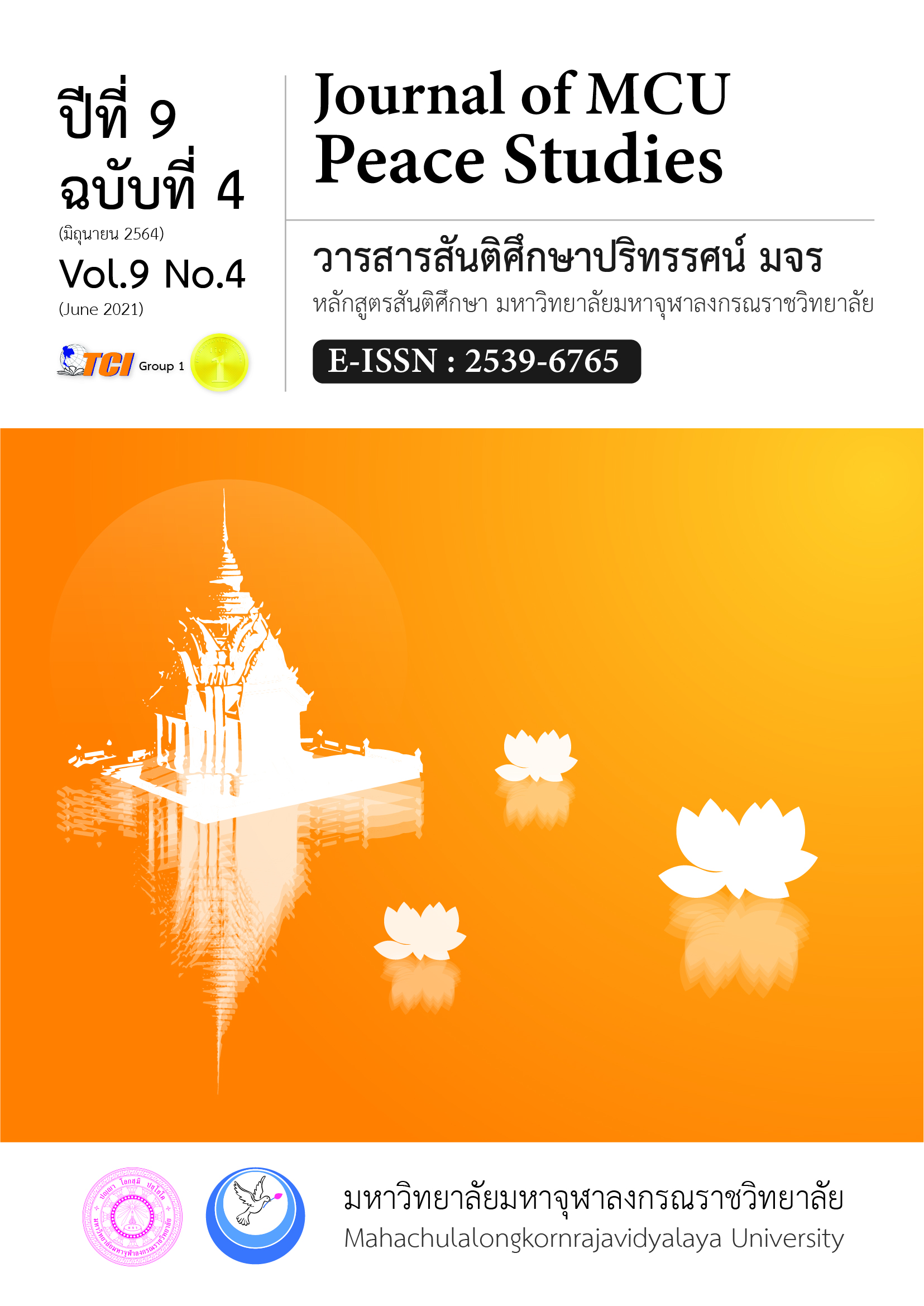Unsafe house environment influencing on depression in the elderly in Thailand
Main Article Content
บทคัดย่อ
The house environment has a contribution to the prevalence of depression in the elderly. Unsafe house environment tend to enhance the depressive conditions of the elderly. This study was conducted to determine prevalence of depression, and to examine if unsafe house environment influencing on depression in the elderly in Thailand. A national cross-sectional survey which the data collection was conducted from December 2012 to April, 2013 was employed in this study. A total of 4,564 elderly was selected by the multi-stage random sampling. Chi-square tests and multiple logistic regression were used to examine associations between independent variables and depression in the elderly. The researcher found that the prevalence of depression within the last 2 weeks in the elderly was 30.6%. Chi square tests detected the factors significantly associated with depression in the elderly were age groups, sex, education levels, marital status, occupation, types of family, religion, income per month, economic self-reliance, safe house environment, quality of life, family relationship, having a disease and daily life activities. In multiple logistic regression, low income per month (Adj. OR=1.29, 95% CI=1.05-1.59), little economic self-reliance (Adj. OR=1.89, 95% CI=1.27-2.80), poor quality of life (Adj. OR=7.26, 95% CI= 4.16-12.66), fair quality of life (Adj. OR=2.81, 95% CI=2.01-3.92), having a disease (Adj. OR=1.69, 95% CI=1.37-2.09), needed assistance for daily life activities (Adj. OR=1.61, 95% CI=1.19-2.18) and unsafe house environment (Adj. OR=2.03, 95% CI=1.59-2.61) were still remained as the significant risk factors for depression in the elderly. After adjusting for other factors, the elderly who lived in the unsafe house environment were about 2 times more likely to get depression than those living in the safe house environment. The findings indicate that providing job opportunity to generate income for poor elderly should be widely promoted across the country. The local authority should take more responsibility in making the house environment more safe for the elderly.
Article Details
ทัศนะและความคิดเห็นที่ปรากฏในบทความในวารสาร ถือเป็นความรับผิดชอบของผู้เขียนบทความนั้น และไม่ถือเป็นทัศนะและความรับผิดชอบของกองบรรณาธิการ ยินยอมว่าบทความเป็นลิขสิทธิ์ของวารสาร
เอกสารอ้างอิง
Andrews, G. et al. (2018). Computer therapy for the anxiety and depression disorders is effective, acceptable and practical health care: an updated meta-analysis. Journal of Anxiety Disorders, 55, 70-8.
Araújo, JR. et al. (2015). Folates and aging: Role in mild cognitive impairment, dementia and depression. Ageing Research Reviews, 22, 9-19.
Aylaz, R. et al. (2012). Relationship between depression and loneliness in elderly and examination of influential factors. Archives of Gerontology and Geriatrics, 55(3), 548-554.
Bhamani, MA., Karim, MS., & Khan, MM. (2013). Depression in the elderly in Karachi, Pakistan: a cross sectional study. BMC Psychiatry, 13(1), 181.
Cao, W. et al. (2016). A community-based study of quality of life and depression among older adults. International Journal of Environmental Research and Public Health, 13(7), 693-703.
Charoensakulchai, S. et al. (2019). Prevalence and associated factors influencing depression in older adults living in rural Thailand: A cross-sectional study. Geriatrics &Gerontology International, 19(12), 1248-1253.
Department of Mental Health. (2014). Screening test for depression and risk of suicidal ideation(DS8). Department of Mental Health, Ministry of Public Health, Thailand.
Frerichs, L. et al. (2016). Integrating systems science and community-based participatory research to achieve health equity. American Journal of Public Health, 106(2), 215-222.
Fok, CCT., Allen, J., Henry, D., & Team, PA. (2014). The Brief Family Relationship Scale: A brief measure of the relationship dimension in family functioning. Assessment, 21(1), 67-72.
Gitlin, NL., Mann, W., Tomit, M., & Marcus, MDS. (2001) Factors associated with home environmental problems among community-living older people. Disability and Rehabilitation, 23(17), 777-787.
Han, HR. et al. (2007). Correlates of depression in the Korean American elderly: Focusing on personal resources of social support. Journal of Cross-Cultural Gerontology, 22(1), 115-127.
Hung, M. et al. (2017) The relationship between family support; Pain and depression in elderly with arthritis. Psychology, Health & Medicine, 22(1), 75-86.
Ma, L. et al. (2015). Risk factors for depression among elderly subjects with hypertension living at home in China. International Journal of Clinical and Experimental Medicine, 8(2), 2923-2933.
McLaren, ME., Szymkowicz, SM., Kirton, JW., & Dotson, VM. (2015). Impact of education on memory deficits in subclinical depression. Archives of Clinical Neuropsychology, 30(5), 387-393.
Munsawaengsub, C. (2012). Factors influencing the mental health of the elderly in Songkhla, Thailand. Journal of the Medical Association of Thailand, 95(6), S8-S15.
Olpoc, JRS. (2016). Factors affecting the level of depression among Thai elderly. Papers SSRN; 2016. Retrieved May 12, 2020, from https://papers.ssrn.com/sol3/papers.cfm?abstract_id=277888.
O’Connor, LE., Berry, JW., Stiver, DJ., & Rangan, RK. (2012). Depression, guilt, and Tibetan Buddhism. Psychology, 3(9), 805-809.
Okabayashi, H. et al. (2004). Mental health among older adults in Japan: Do sources of social support and negative interaction make a difference?. Social Science & Medicine, 59(11), 2259-2270.
Pocklington, C. (2017). Depression in older adults. British Journal of Medical Practitioners, 10(1), 1007.
Snippe, E. et al. (2016) Change in daily life behaviors and depression: within-person and between-person associations. Health Psychology, 35(5), 433-442.
Suttajit, S. et al. (2010). Impairment, disability, social support and depression among older parents in rural Thailand. Psychological Medicine, 40(10), 1711-1721.
Wisajun, P., & Lotrakul, M. (2018). Consultation-Liaison Psychiatry in Ramathibodi Hospital. Ramathibodi Medical Journal, 41(4), 48-55.
World Health Organization. (2017). Mental health of older adults. Retrieved May 7, 2020, from http://www.who.int/mediacentre/factsheets/fs381/en/.
Woolhouse, H., Gartland, D., Mensah, F., & Brown, SJ. (2015). Maternal depression from early pregnancy to 4 years postpartum in a prospective pregnancy cohort study: implications for primary health care. International Journal of Obstetrics & Gynaecology, 122(3), 312-321.


